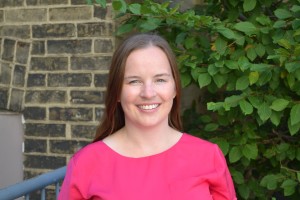By Jacqueline Beaulieu, Integrated Learning Experience Student Co-Leader
As a full-time PhD student in the Higher Education program at the Ontario Institute for Studies in Education, I study decision-making processes in student affairs and services and implications for shared governance in higher education. As the student leader for the Innovation Hub’s Integrated Learning Team, I thought it would be appropriate to contribute a blog post that integrates my own learning as a result of participating in the Innovation Hub with that from my thesis-related work.
Over the past month and a half, our team interviewed undergraduate and graduate students, reflecting a host of academic programs, and asked them to tell us about:
- how they learn
- when they have felt the most engaged and/or disengaged in their learning
- when they have felt a sense of connection (or lack thereof) across what and how they learn
- the coolest thing they’ve learned while attending U of T
Students shared many thought-provoking insights about their learning experiences. A major theme that caught our group’s attention was that students wanted to feel more acknowledged, understood, respected, and cared for as learners. Students want faculty and peers to better understand and appreciate their life stories as well as how their cumulative life experiences influence how they learn.
As part of my thesis-related work, I recently read an article by Boland (2005) on the topic of student participation in shared governance that explored the concepts of student as client/consumer and student as member of the academic community (p. 209). Boland argued that students “need to be positioned, not merely as clients, but as partners in the academic community” (p. 209). In reviewing students’ stories about learning at U of T and inspired by Boland’s argument, I find myself reflecting upon how the thoughts, words, and actions of faculty, staff, and students can (positively or negatively) influence the position of students as learners within our academic community.
Our team’s findings suggest that we need to continue working towards helping students to feel acknowledged, understood, respected, and cared for as learners. In doing so, we further position students to engage as active partners within our academic community. Therefore how might we work together towards such important goals?
A small yet powerful step is to make a personal commitment to think, speak, and act in ways that extend the fullest opportunity for students to experience membership within our academic community. Small yet powerful actions that are likely to make a difference:
- Seeking to learn from and alongside students while engaging students in learning activities
- Planning with students instead of for students
- When referring collectively to students, using the phrases “students” or “U of T students” in place of “our students” so as to further uplift and honour students’ role as partners within our academic community.
The Integrated Learning Team continues to brainstorm initiatives that will address students’ need to feel acknowledged, understood, respected, and cared for as complex learners. We look forward to presenting additional findings and recommendations in the new year. Until then, I invite each of us to reflect upon the following questions:
- How might we help students to feel more acknowledged, understood, respected, and cared for as learners?
- How might we further position students to engage as active partners within our academic community?
References:
Boland, J. A. (2005). Student participation in shared governance: A means of advancing democratic values. Tertiary Education and Management, 11, 199-217. doi:10.1007/s11233-005-5099-3

0 comments on “Positioning Students as Partners in our Academic Community”